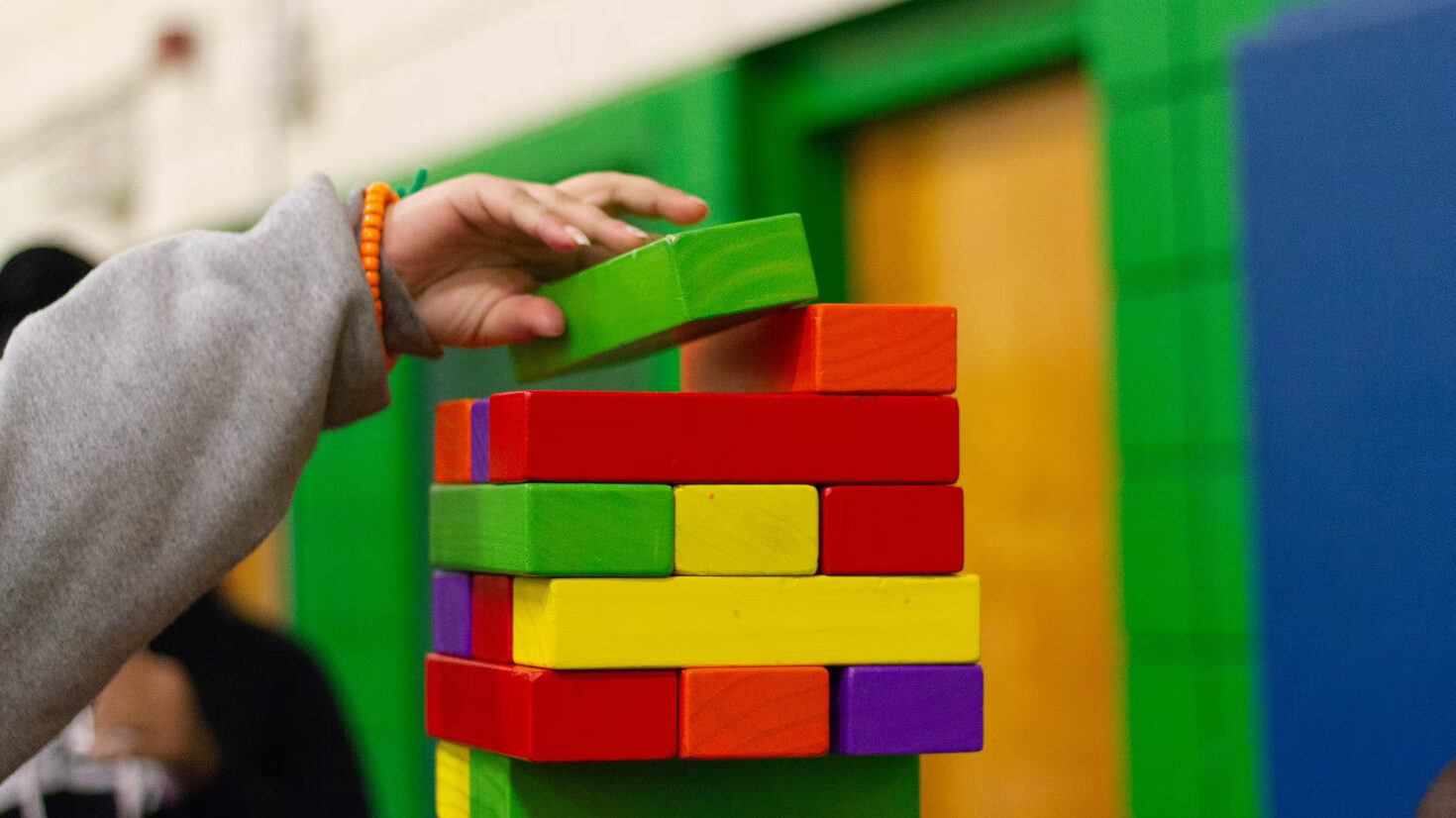When a Toddler Plays with Blocks, Are They Preparing for the Future? A Team of Georgetown Researchers Says Yes
Robert Cortes (C’18, G’23) is the lead author of a new paper exploring the relationship between early childhood motor skills and adolescent reasoning. Published in Developmental Psychology, a journal of the American Psychological Association, the study has exciting implications for how scientists, educators and parents understand early childhood development.
The paper’s authors analyzed an existing data set to conclude that better fine motor skills in early childhood, such as playing with blocks or tracing shapes, predict better reasoning abilities in adolescence. While further research is needed to establish a causal connection, it’s an exciting advancement for researchers who believe motor interventions at an early age could improve academic and creative output later in life.
A fourth-year Ph.D. student in the Department of Psychology, the bulk of Cortes’ research hitherto has been in a lab – stimulating the brain and seeing how real-life humans respond. Thanks to the providence of academic cross-pollination, however, Cortes explored a new form of quantitative research for this paper.
A Tale of Two Classes
Cortes struck upon the topic for this study by combining complementary components of two separate classes. The first, a graduate course on cognitive development taught by Rachel Barr, a developmental psychologist in the Department of Psychology and a co-author of the paper, exposed Cortes to the developmental cascade theory.
The theory posits that there are initial motor and cognitive skills – such as the ability to explore a physical space or manipulate objects with your hands – that emerge relatively early in life. These foundational skills begin a “cascade” of social and cognitive development. Existing literature has explored the relationship between motor skills and performance on reading and math tests in adolescence.

Cortes wanted to investigate whether the developmental cascade theory would hold true for reasoning skills as well. Exploring this question, however, would require longitudinal research beyond what could easily be collected in a lab.
Rebecca Ryan, a Provost’s Distinguished Associate Professor in the Department of Psychology and a co-author of the paper, introduced Cortes to the power of secondary data analysis in a graduate course on quantitative research methods. Together with Adam Green, the director of the Lab for Relational Cognition and a Provost’s Distinguished Associate Professor, the team leveraged secondary data analysis to test the limits of developmental cascade theory.
Exposure to separate topics in different classrooms has led to Cortes and the team publishing a new paper on a novel topic in a prestigious journal.
“It’s the best-case scenario for a graduate class in a Ph.D. program,” says Cortes. “You learn a new research method and work on a project that results in a published paper, which expands your skill set.”
Great Expectations
In addition to establishing the relationship between fine motor skills and reasoning in adolescence, the paper builds on existing work in the developmental cascade literature, which has found that early motor skills predict reading and math performance in adolescence.
“The link between early motor skills and math and reading aptitude was significantly mediated by the connection with reasoning skills,” Cortes says. “Improvement in reasoning, which may measure the broader cognitive ability to build and construct mental models, was associated with improvement in math and writing skills. This link helps us understand the potential mechanism for the development cascade between early fine motor skills and later math and reading ability.”
In other words, when adolescents build mental models to move numbers around or structure a sentence, they may be relying on the same core reasoning skills that are built off of motor skills during early childhood development. For future researchers, this has tremendous potential for positive interventions in early childhood.
“These findings have broader implications for the field of early motor intervention,” Cortes says. “Typically, early motor development is closely monitored and intervened on if children are not reaching certain motor milestones. By better understanding this connection we may be able to improve cognitive outcomes into adolescence.”
-by Hayden Frye (C’17)
